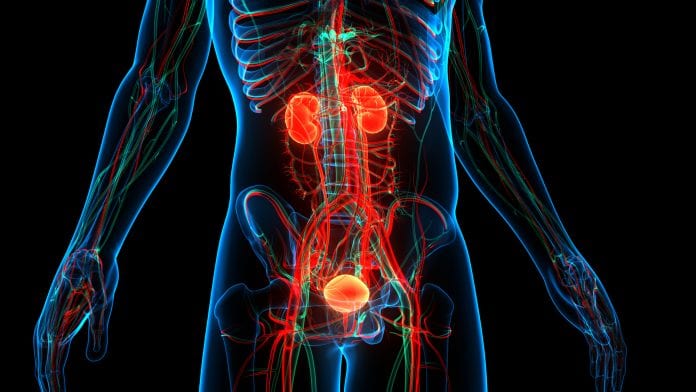
Using a new approach to molecular drug design, scientists have created a highly promising bladder cancer treatment.
The new drug to treat bladder cancer was developed by a group of researchers from Trinity College Dublin, Charles University and Motol Hospital (Prague), Lund University, and start-up company Hamlet Pharma. When used in clinical trials, the drug was found to induce rapid shedding of tumour cells and resulted in a significant reduction in tumour size.
The study has been published in the journal Nature Communications.
The IDP concept: A new approach to drug design
The new approach to designing the drug candidate involved using the “intrinsically disordered proteins” (IDP) concept, which relates to the recent understanding that a large segment of proteins in the body do not have a fixed 3D structure— instead, they typically each take shape in a variety of ways/structures that change depending on a range of factors.
This contrasts with the more common drug design direction taken, which is based on the “lock and key” concept. This idea suggests that proteins have fixed, well-organised 3D structures, allowing drugs to be designed to target very specific regions.
The new approach involved the use of an IDP complex known as HAMLET – a component of human milk—which, when partially unfolded, possesses tremendous cancer-killing abilities.
Significant reduction in tumour size
Dr Ken H Mok, Associate Professor in Trinity’s School of Biochemistry and Immunology and the Trinity Biomedical Sciences Institute, led the structural element of the work.
Dr Mok said: “Targeted cancer therapies have made significant advances in recent years, but the lack of tumour specificity remains a significant concern. Few current therapies kill cancer cells without harming healthy tissues, and severe side effects have become accepted as a necessary price to pay for survival or cure. This research is therefore extremely exciting as the clinical trials show great impact in reducing tumour size in people with this form of bladder cancer without any side effects.
“From a scientific perspective – and with a nod to the great potential for other therapeutic discoveries – it is also extremely exciting to have contributed to an entirely new approach to molecular drug design. Intrinsically disordered proteins compose over 50% of the human proteome and their malleability to adapt towards binding a variety of surfaces may, in some cases such as this, result in a gain of function. One motif may have a ‘targetable weakness’ that others don’t have.
“This concept may help people understand why drugs designed using “lock and key” principles often fail in clinical trials if they encounter different structural forms of the protein they were made to attack. Once the blueprints change, a promising drug may not have the desired impact.
“In a way, we are witnessing an analogous rapid variation in protein structure during this COVID-19 pandemic, albeit through the sampling of mutation space. Although not an intrinsically disordered protein, the spike protein of the virus is continuously varying its thermodynamic stability or allowing it to be processed more readily by our cells – in other words, it is practising a kind of conformational fluidity.”

























